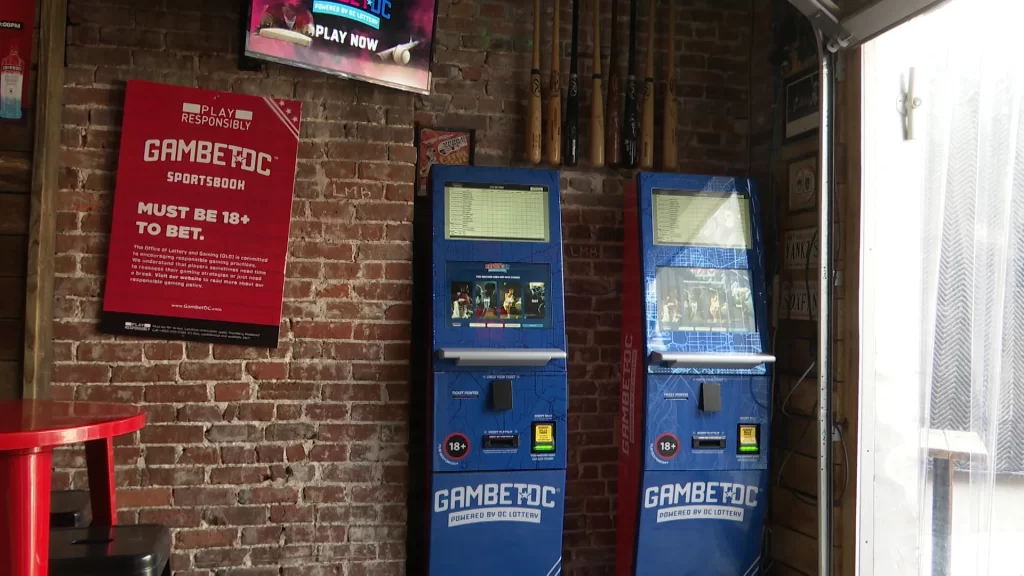Many people wonder how sportsbooks and sports betting operations in general could ever lose money or go out of business. After all, their profit is built into the design of their business, right? In its simplest form the answer to this question is a resounding yes, but the reality for Washington DC’s lone sports betting operator, GambetDC, is that sometimes things are not as simple as they seem.

Washington DC is unknown to most people in the sports betting world because most people are not aware sports betting exists there. In other instances, people assume that Washington DC falls under either Maryland or Virginia, where online and in-person sports betting is legal. The reality is that the tiny District of Columbia has a longstanding sports betting industry, albeit one that is fragmented, struggling financially, and antiquated. The antiquated aspect of GambetDC’s operation was exploited earlier this year by a single bettor who profited thousands and, at the same time, prompted a change in the way DC sports betting exists.
Deviations in Betting Lines Exploited
For this story to make sense, you need to know a bit more about how sports betting in Washington DC works. Similar to most states where sports betting is legal, DC sports betting can only exist within a well-defined geographic area. Making matters a bit more confusing than most states is the fact that even within DC, certain parts of the city are off limits for one reason or another. This presents a situation where sports betting might be legal on one block but not legal two streets over. Confusing as this may be, there are still plenty of restaurants, bars, and other establishments with GambetDC betting kiosks, and Abunai, a small poke restaurant, is one of them.
This small restaurant in Northwest Washington DC was the betting headquarters of a sharp bettor who would eventually be the reason for a change in DC sports betting rules. Very quickly, the restaurant’s staff noticed a patron who was there nearly every day, but never ordered a single dish. On its face this seems strange, but no one questioned it as this bettor’s patronage was changing the restaurant’s fortunes for the better.
The reason this anonymous bettor loved Abunai so much was because he realized that their GambetDC betting terminal (and all others like it in DC) offered betting lines that were sometimes markedly different from those found on sites like FanDuel or BetMGM. These deviations were exploited time and time again, profiting the DC bettor hundreds of thousands of dollars. Another flaw in GambetDC that allowed for this to go on for so long without any questions being raised was the anonymity associated with betting in DC. Unlike any other jurisdiction where you are forced to register and create an account when betting online or at a kiosk, GambetDC did not have such requirements. If this same situation was playing out in the online sports betting market of nearby Virginia, a bettor performing as well as the bettor in DC would have his account flagged and wagers capped. In other words, a sportsbook would limit how much a person can wager on a single event/bet. What this meant in the nation’s capital is that the anonymous DC bettor was not ever able to have his wagers capped, and he profited as a result.
Betting Rules Changed in a Hurry
Once the D.C. Lottery’s Regulation and Oversight Division finally caught on to their old systems being exploited, they moved to quickly cap the anonymous bettor’s wagers. Not only that, they have moved to more tightly restrict the wagering limits for all bettors. If you try to place sports bets in Washington DC today, there will be a much larger and more noticeable number of restrictions in place.
Though sports betting legalization has been a boon to the bottom lines of many states’ coffers, the same cannot really be said about Washington DC. To put it simply, the sports betting industry in the District is struggling, and has been for some time now. Adding more restrictions and limits to betting is exactly what DC does not need, especially if it wants to see monthly betting revenues that exceed even $5 million.